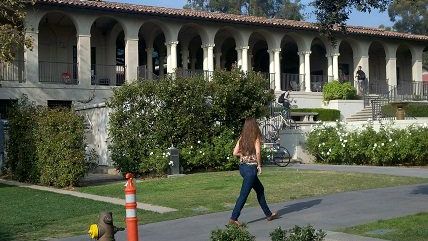Occidental Expels Student for Rape Under Standard So Low That the Accuser Could Have Been Found Guilty, Too
"Both parties would be guilty of sexually assaulting one another," said Shibley.

Does all drunken sex constitute rape? Obviously not, but that's the argument Occidental College administrators must make in their zeal to prosecute a male student for sexual assault—even after police acquitted him.
The student, identified only as "John Doe," had sex with his accuser on September 8th, 2013, according to details of the case obtained by the Foundation for Individual Rights in Education. Both Doe and his accuser had been drinking. By several accounts, the sex was consensual. The accuser sent Doe a text message beforehand asking him if he had a condom. She also texted a friend and clearly announced her intention to have sex with Doe.
After that night, the accuser spoke with several Occidental employees, including Danielle Dirks, an assistant professor of sociology. Dirks told the accuser that Doe "fit the profile of other rapists on campus in that he had a high GPA in high school, was his class valedictorian, was on [a sports team], and was 'from a good family.'"
A week later, the accuser filed a sexual assault report against Doe.
The Los Angeles Police Department determined that both parties had consented to sex and decided not to charge Doe:
"Witnesses were interviewed and agreed that the victim and suspect were both drunk, however, that they were both willing participants exercising bad judgment …. It would be reasonable for [Doe] to conclude based on their communications and [the accuser's] actions that, even though she was intoxicated, she could still exercise reasonable judgment."
Occidental College, however, is under pressure to be seen as doing something about sexual assault on campus given the federal investigation into its rape prevention practices, so the college hired attorney Marilou Mirkovich to investigate the matter. Mirkovich concluded that the female student did indeed consent to sex. However, since she was intoxicated, her consent was invalid, according to Mirkovich.
This is a flawed interpretation of Occidental's own policy on consent, which requires students be not merely drunk but actively incapacitated for rape to have occurred, according to FIRE Vice President Robert Shibley.
Indeed, Mirkovich's interpretation makes no sense. If all drunken sex is rape, then Doe and his accuser are both guilty.
"Both parties would be guilty of sexually assaulting one another," Shibley told me in a phone interview.
Occidental is only holding Doe responsible, however. He was found guilty and expelled.
The college denied Doe's appeal. He has since filed a lawsuit against the college and reached out to FIRE for help. FIRE sent Occidental a letter outlining the group's concerns that Doe's due process rights were severely violated.
"Right now we are waiting from a response from Occidental," said Shibley.


Show Comments (225)